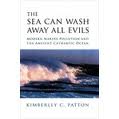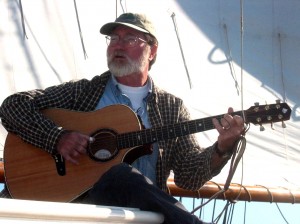Just in case anyone needs more reasons to go to the Hungry Ocean conference in April, I’ll introduce our lineup of keynote speakers.
First up with be Margaret Cohen, who will talk on “The Imaginary Geography of the Sea.” Professor Cohen’s great new book, The Novel and the Sea, which I blogged about a little while ago, has just been published, and we’re all eager to hear her further thoughts on maritime craft, the international sea-novel, and other matters.
Later that day, Bernhard Klein will give a talk on early modern maritime studies, with the great title, “Fish Walking on Land.” Professor Klein has written widely on early modern maritime matters and has also edited two wonderful essays collections, Fictions of the Sea, and Sea-Changes: Historicizing the Ocean.
Rounding things out on Saturday evening will be Patsy Yeager, whose talk, “Oceanic Ecocriticism$” will expand upon some of her comments in the recent PMLA cluster she edited last spring. I’m wondering if her talk will also connect to her recent work on the “apotheosis of trash” and perils of tossing our waste into the world ocean.
Many things to look forward to.






